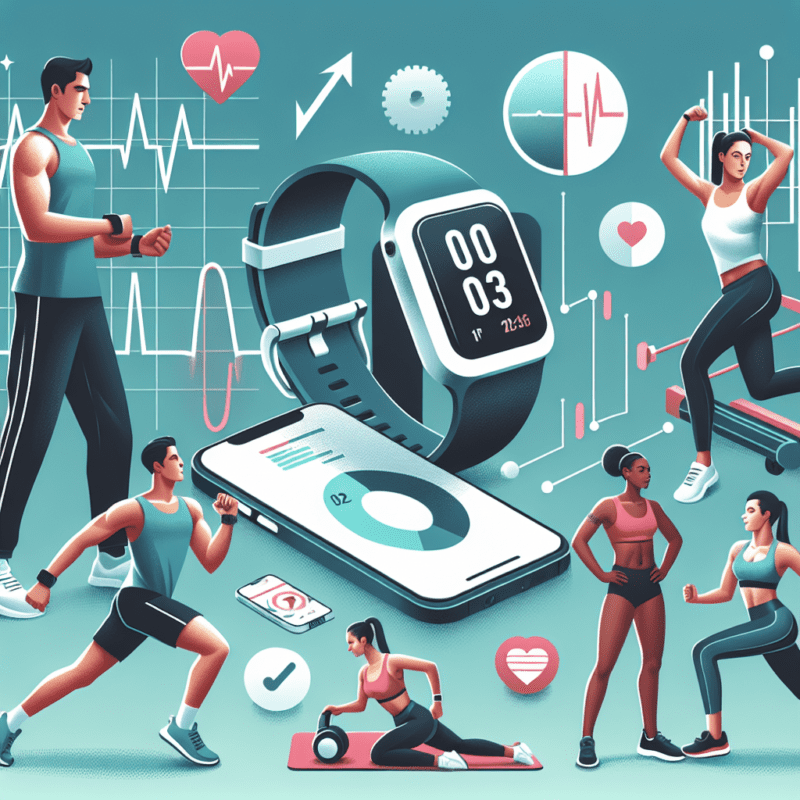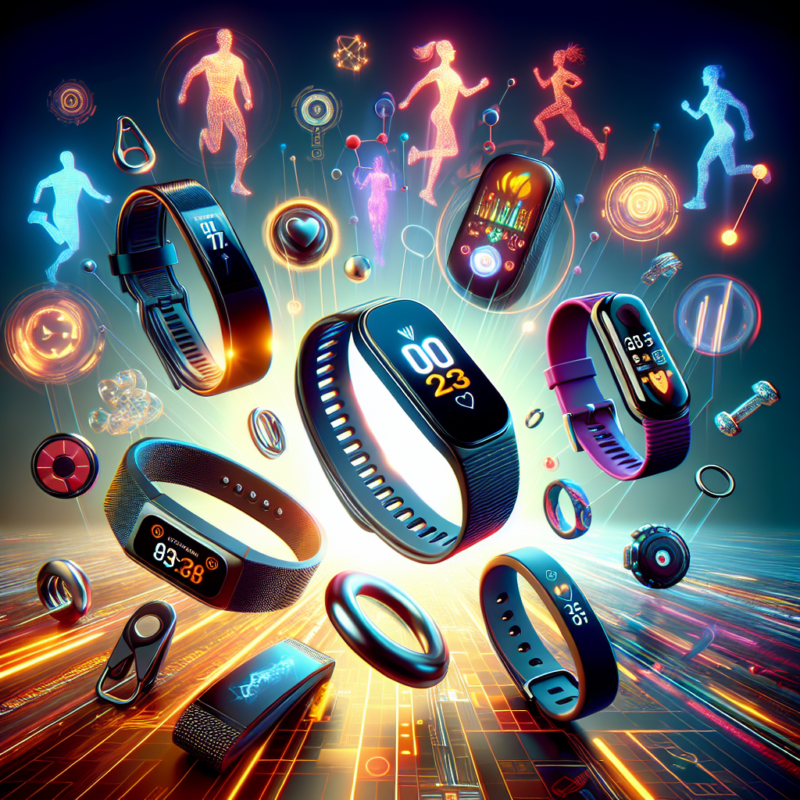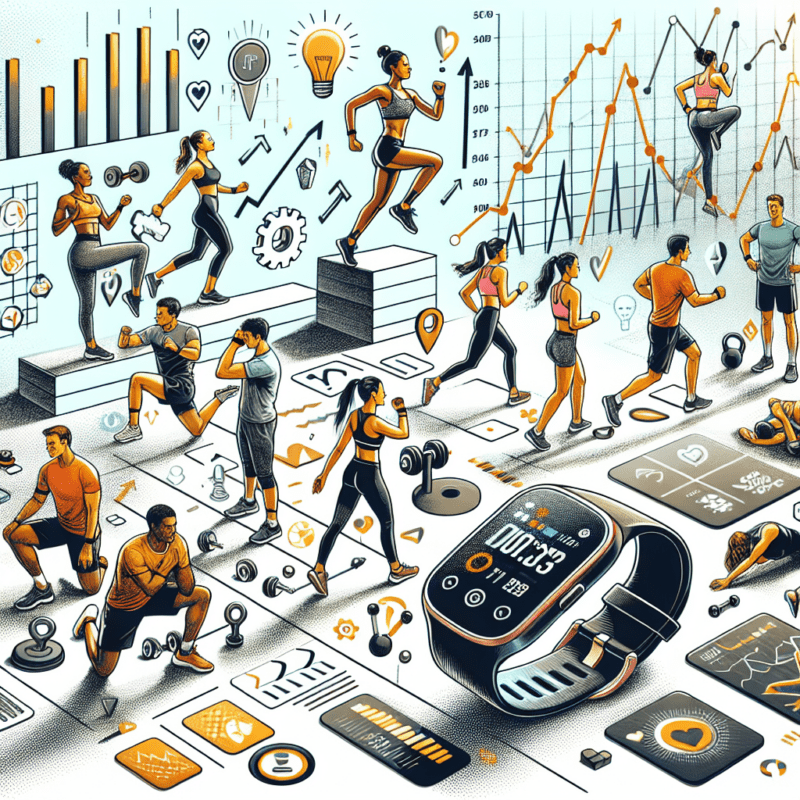In today’s fast-paced world, maintaining fitness has become a crucial aspect of a healthy lifestyle. Fitness tracking devices have emerged as popular tools intended to assist individuals in monitoring their physical activity, sleep patterns, and overall health. But the burning question remains: do these devices genuinely help users achieve their fitness goals? This article delves into the effectiveness of fitness tracking devices, their features, benefits, and potential downsides, ultimately providing a comprehensive understanding to help you decide if they are the right fit for you.
The Rise of Fitness Tracking Devices
In recent years, fitness tracking devices have gained immense popularity, transitioning from niche products to mainstream wellness tools. The rise of wearables, such as smartwatches and fitness bands, can be attributed to the increasing awareness around health and wellness. These devices now offer an array of features, including heart rate monitoring, step counting, calorie tracking, and even guided workouts. This technological evolution has transformed how individuals approach fitness, providing them with real-time data that can be analyzed and utilized to foster healthier habits.
As more people turn to fitness tracking devices, the industry has experienced rapid growth, with leading brands consistently innovating to improve their offerings. Many devices not only track physical activities but also integrate sleep monitoring, nutrition logging, and social connectivity into their platforms, furthering their appeal. With the promise of enhanced insights into one’s health and fitness, many are eager to adopt these devices as vital tools in their quest for better well-being.
Understanding Fitness Goals and Objectives
To grasp the effectiveness of fitness tracking devices, it’s essential to define what fitness goals and objectives entail. Fitness goals can vary widely—from losing weight, building muscle, and increasing endurance to improving overall health and well-being. Understanding the type of objectives individuals aim to achieve is crucial because it directly influences how effectively fitness tracking devices can address these needs. Each goal requires a tailored approach, and the right device can provide the necessary support and guidance for success.
Fitness tracking devices can be particularly effective in helping users set specific, measurable, achievable, relevant, and time-bound (SMART) goals. By utilizing the data provided by these devices, individuals can gauge their progress, make informed decisions, and adapt their training regimens accordingly. For example, someone aiming to lose weight can set a step goal that aligns with their calorie deficit needs. In this way, these devices provide the structure and feedback essential to achieving personalized fitness milestones.
Features that Enhance Fitness Tracking Devices
The utility of fitness tracking devices hinges largely on the features they offer. The most common features include step counting, heart rate monitoring, calorie tracking, sleep analysis, GPS tracking, and integration with health apps. Step counting provides users with a tangible metric to assess daily activity levels, paving the way for accountability and motivation. In parallel, heart rate monitoring enables individuals to gauge their intensity levels during workouts, ensuring they are pushing themselves appropriately for optimal results.
Calorie tracking assists users in understanding their energy expenditure versus intake, critical for those looking to lose or gain weight. Additionally, sleep analysis can uncover patterns that may be impacting training recovery and performance. When these features are combined with GPS tracking, users can measure distance and pace during outdoor activities, helping them finetune their training for better performance. Overall, these varied features equip users with the insights needed to make informed decisions about their fitness journey.
The Psychological Impact of Fitness Tracking Devices
Beyond the physical benefits of utilizing fitness tracking devices, their psychological impact cannot be underestimated. Many users experience increased motivation and commitment to their fitness goals when armed with real-time data tracking. The simple act of visualizing progress through graphs and statistics can have profound effects on an individual’s psyche, resulting in boosted motivation levels and improved consistency in workouts.
Moreover, many devices feature social sharing capabilities that allow users to connect with friends and family, create challenges, and share achievements. This social aspect can foster a sense of community and competition that drives individuals to push harder towards their fitness goals. However, it’s essential to strike a balance, as excessive focus on numbers can lead to anxiety for some users. Overall, the right approach to using fitness tracking devices can yield significant psychological benefits that complement their physical advantages.
Limitations and Drawbacks of Fitness Tracking Devices
Despite the numerous benefits associated with fitness tracking devices, several limitations warrant consideration. First, it’s essential to recognize that these devices are not infallible; their accuracy can be influenced by various factors such as improper wear, device functionality, or the specific activity being tracked. For instance, step counters may struggle to accurately register movements during activities such as cycling or swimming, leading to misleading data. Users must be aware of these potential inaccuracies to avoid frustrating outcomes.
Additionally, excessive reliance on fitness tracking devices can result in a detrimental relationship with physical activity. Individuals may become overly fixated on their numbers, causing stress or burnout if progress stalls or plateaus. It’s vital to remember that fitness is a long-term journey, and deviations from the ideal metrics are natural and should not overshadow overall well-being. Striking a balance between responsiveness to data and maintaining a healthy mindset around fitness is crucial in ensuring that fitness tracking devices serve as effective tools rather than sources of anxiety.
Conclusion: Are Fitness Tracking Devices Worth It?
In conclusion, fitness tracking devices offer a wide range of features and benefits that can significantly enhance an individual’s ability to achieve fitness goals. They provide valuable data, promote accountability, and encourage motivation, ultimately making them worthwhile tools for many users. However, it is essential to stay mindful of their limitations and approach fitness tracking with a healthy mindset.
While these devices can aid in setting and reaching specific goals, they are most effective when used as part of a broader, holistic approach to health and fitness. Engaging in mindful and varied physical activities, maintaining a balanced diet, and cultivating a supportive environment are all critical components for success. Thus, fitness tracking devices can play a pivotal role in your fitness journey, as long as they are utilized intelligently and responsibly.
FAQs
1. Can fitness tracking devices help with weight loss?
Yes, fitness tracking devices can be instrumental in weight loss by providing insights into calorie expenditure, daily activity levels, and exercise intensity. By understanding these metrics, users can better regulate their diet and exercise to create a calorie deficit.
2. How accurate are fitness tracking devices?
The accuracy of fitness tracking devices can vary depending on the model and feature. Basic features like step counting are generally reliable, while advanced functionalities such as heart rate monitoring may have discrepancies compared to clinical-grade methods.
3. What types of fitness tracking devices are available?
Fitness tracking devices range from simple pedometers to sophisticated smartwatches that monitor various health metrics, including heart rate, sleep, and even stress levels. There are specialized devices for specific activities, such as running watches and swim trackers, as well.
4. Can fitness trackers motivate you to exercise more?
Many users report increased motivation attributed to tracking progress visually through statistics and challenges. Setting personal goals based on data can encourage consistency and engagement in physical activity.
5. Are there downsides to using fitness tracking devices?
While there are numerous benefits, potential downsides include inaccuracies in data tracking, over-reliance on numbers leading to anxiety about progress, and the possibility of performance pressure. It’s crucial to maintain a holistic approach to health and fitness beyond just the metrics provided.



